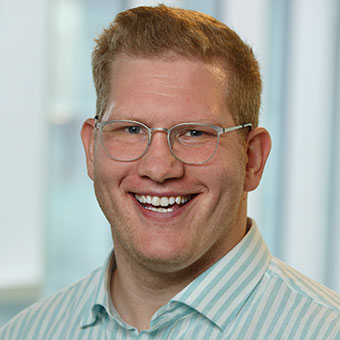Faculty News and Highlights
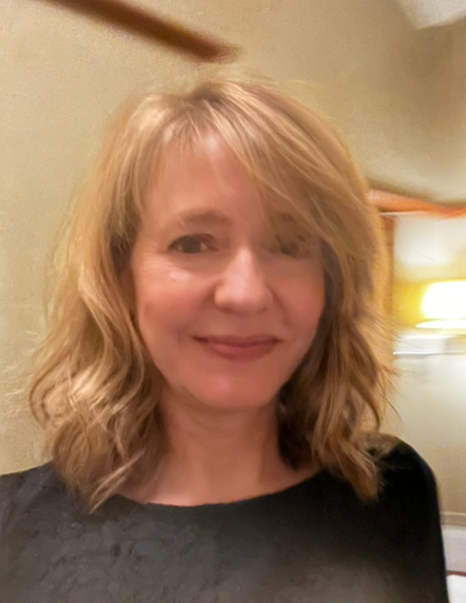
February 19, 2026
Professor Janet McIntosh has published an op-ed in CounterPunch exploring the interplay between humor and cruelty in recent communications by ICE/Homeland Security. The same outlet also featured an adapted excerpt from her recent book Kill Talk: Language and Military Necropolitics. An interview about the book can also be found featured on the CaMP Anthropology blog.
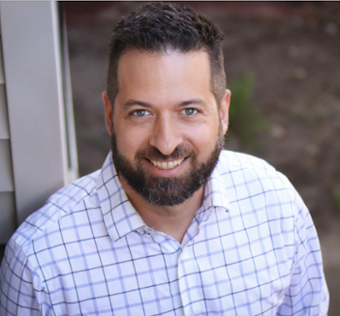
August 22, 2025
Professor Jonathan Anjaria, along with co-PIs Melissa Cefkin and Mark Moritz, was awarded a three-year grant from the National Science Foundation’s Cultural Anthropology Program, with additional support from the Biological Anthropology Program, for a project titled “A Cross-Institutional Study of STEM Workforce Development.” The main goal of this project is to examine why and how some Anthropology programs are successful in developing career-ready curricula and others are resistant to changing the curriculum, while identifying strategies for addressing this challenge. The project has three interrelated objectives: (1) study how anthropology programs prepare undergraduate and graduate students for life beyond the degree; (2) examine challenges and opportunities in developing career-ready curricula in anthropology departments; and (3) identify strategies for curricular/cultural change in anthropology programs.
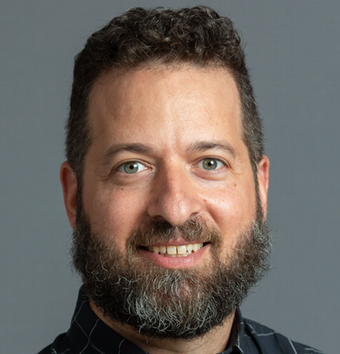
June 16, 2025
Professor Jon Anjaria's research will focus on on three interlocking arms: research, public engagement and professional pipeline development. New research will focus on religious change related to congregational closures, spiritual innovation and changes in religious leadership in Boston, Chicago, Los Angeles and a fourth city to be named soon.
For more information about Identifying and Advancing the Spiritual Infrastructure of the Future, visit the Bryn Mawr College website.
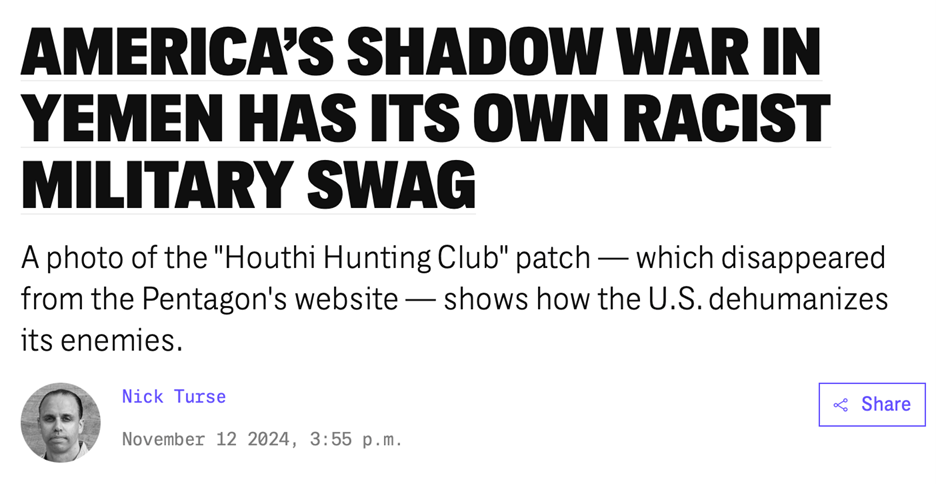
November 21, 2024
Professor Janet McIntosh is quoted by journalist Nick Turse who shares her opinions about a dehumanizing shoulder patch worn by Navy personnel in the Red Sea. Connecting the patch to the long history of military racism and morally dubious humor, McIntosh argues that “the military’s tacit endorsement of the patches is part of a broader pattern of conflicted messaging in military training and military culture.” She adds that “on the one hand, [military personnel are] instructed about rules and laws designed to carefully control violence, but on the other, you can find messaging that indirectly encourages the idea that military identity is partly about transgressing morality and sometimes even the military’s own rules.”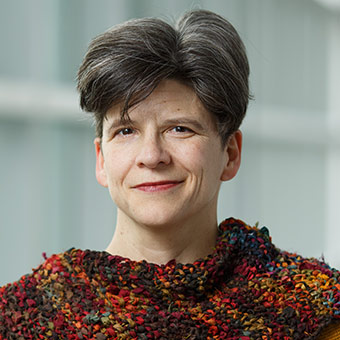
October 21, 2024
Professor Elizabeth Ferry shared five essential books that effectively capture the effects of mining operations on communities in Latin America, a focus of her work for over twenty-five years, in the publication The Sheppard. These books provide a deep dive into the various repercussions of mining, highlighting the intricate connections between industry and the lives of local people.May 4, 2024
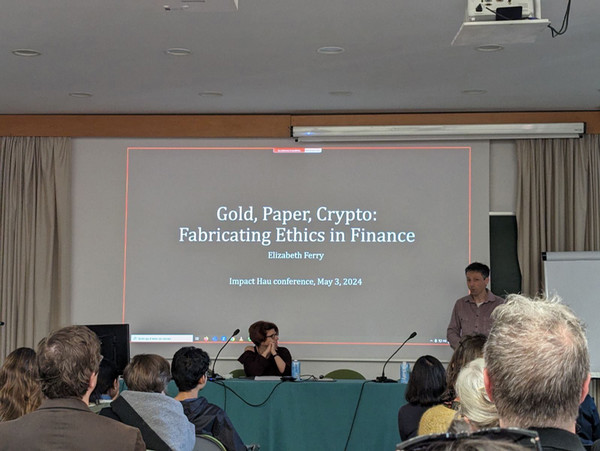
Professor Elizabeth Ferry presented a keynote at the Impact Hau conference, "The Hau of Finance: Impact Investigating and the Globalization of Social and Environmental Sustainability." The conference was held at the Universita di Bologna May 1-4. It focused on the social, cultural and political dimensions of sustainable finance and brought together anthropologists, geographers, sociologists, and scholars in related fields. Ferry's keynote was titled "Gold, Paper, Crypto: Fabrication and Ethics in Finance." Professor Ferry was joined at the conference by plenary session speakers Aneil Tripathy, PhD '21 and PhD candidate Yura Yokoyama. Read more about Aneil's and Yura's sessions (5/4/24).
Read more about the conference.
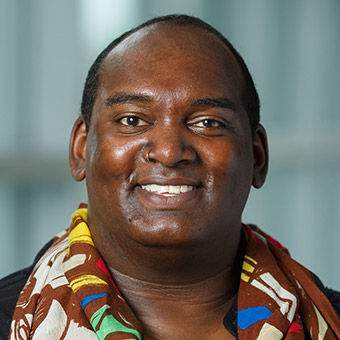
April 18, 2024
Professor Brian Horton has been awarded a National Endowment for the Humanities (NEH) summer fellowship. He will use the award in the summer of 25-26 for his next project, "Capturing Race: Screening (Anti)Blackness in India." The NEH summer stipend competition is highly competitive, with only 13% of applications funded this cycle.
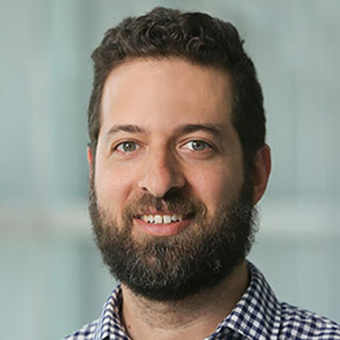
April 4, 2024
Professor Jonathan Anjaria was awarded an AIIS Long-Term Senior Research Fellowship from the American Institute of Indian Studies. He will use the fellowship during his upcoming AY25-26 sabbatical. The project, exploring new Indian foodways, is titled "Collaboration and Innovation in Indian Artisanal Cheese Production."
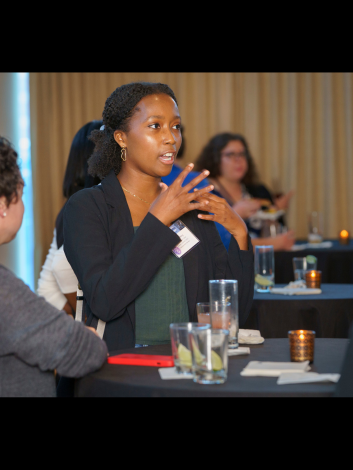
Anthro PhD student Moriah King
February 15, 2024
"If the goal is research that is more public facing or engaged with community needs, what does that even mean? And how can doctoral students do this work when it often means challenging disciplinary norms for designing research questions and carrying out and communicating our research?"
Doctoral student Moriah King and her advisor, Professor Jonathan Anjaria, attempt to answer questions like these in their co-authored essay, "Enabling Community-Engaged and Public-Facing PhDs," in Preparing Publicly Engaged Scholars: A Guide for Innovation in Doctoral Education, published by the American Council of Learned Societies (ACLS). The two decided to sit down and synthesize a conversation they've been having over the past four years -- in part, about the role of experiences people bring to PhD programs and how those experiences shape the research process, including community collaborations.
The authors were invited to speak about their collaboration at the National Humanities Conference in Indianapolis in November 2023; to a webinar sponsored by the ACLS called "Vocation and Location: Pursuing Grounded Knowledge Within and Beyond the Academy" in February 2024; and at the ACLS annual conference in Baltimore in May 2024.
Read their essay (p. 54) and a summary.
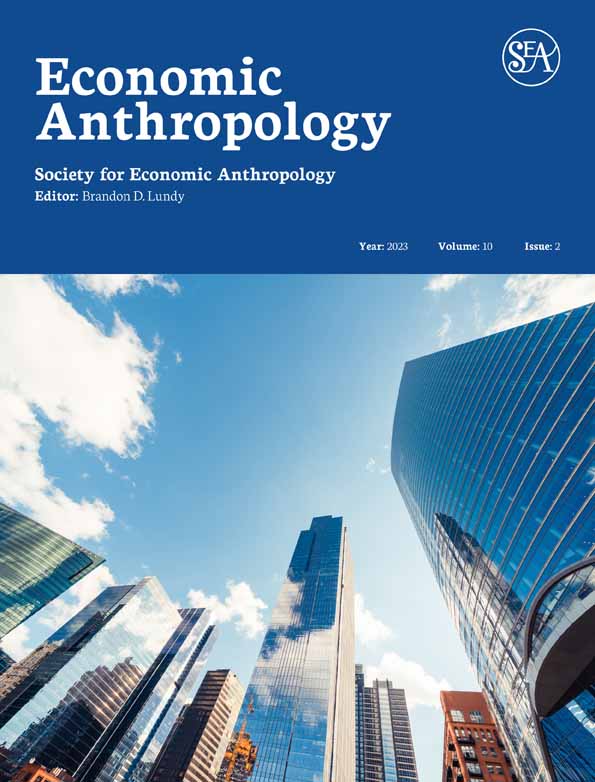
December 19, 2023
Professor Elizabeth Ferry, Aneil Tripathy, PhD '21, and David Wood, co-authored an article for Economic Anthropology entitled, "Mrs. Columbo's antipolitics machine: Quantitative data in responsible finance."
Metrics and other forms of quantification as technologies for rendering knowledge as measurable, usually quantitative “data,” in simplified, legible, and portable ways, have become increasingly central within discussions of the economy, and these quantitative tools have equally become the subject of anthropological discussion and critique. The authors of this article (one an academic, one a practitioner in impact investing, and one a hybrid academic-practitioner in climate finance) respond to the argument that they suggest is implicitly or explicitly present in most of the work around quantification and metrics, namely, that quantification acts as a kind of “antipolitics machine,” rendering political problems as technical ones and simplifying complex realities.
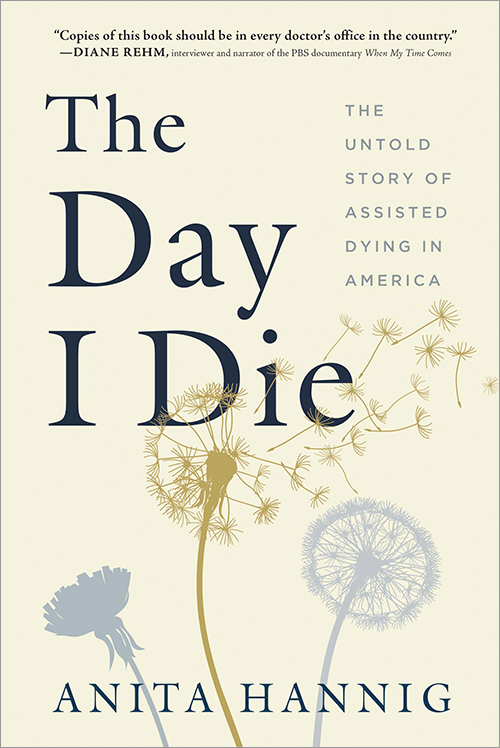
December 13, 2023
How do we separate myths from facts when it comes to physician-assisted death? And what does the future of the practice look like in our country? Anthropology Department research scholar Anita Hannig examined these questions as part of a December 13 panel discussion on NPR's 1A called, "How medical aid in dying is bringing autonomy to end-of-life decisions." Hannig is author of The Day I Die: The Untold Story of Assisted Dying in America. Listen to the episode.
November 30, 2023
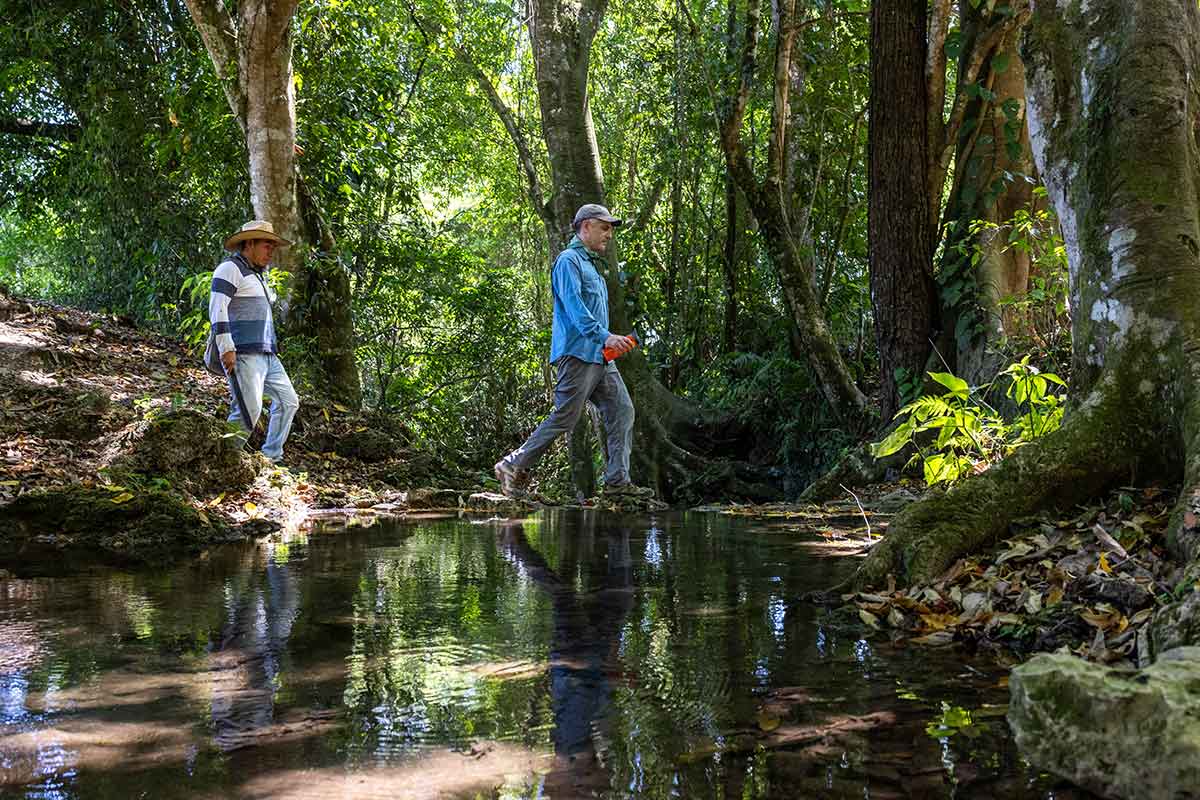 Golden (right) and local landowner Jacinto Gomez Sanchez walk terrain once part of the Sak Tz’i’ kingdom.
Golden (right) and local landowner Jacinto Gomez Sanchez walk terrain once part of the Sak Tz’i’ kingdom.
"Nine years ago, Charles Golden and his longtime collaborator, Brown University bioarchaeologist Andrew Scherer, identified this site and the surrounding 100 acres as a major city in the ancient Maya kingdom Sak Tz’i’ (White Dog). Scholars had been searching for remnants of the city for two decades. It turned out to be hiding in plain sight, amid rubble and outcroppings on a cattle ranch." -"In the Kingdom of the Ancient Maya," Brandeis Magazine Winter 2023/2024.
Read the piece by Lawrence Goodman about Professor Golden's archaeological research on the ancient Maya.
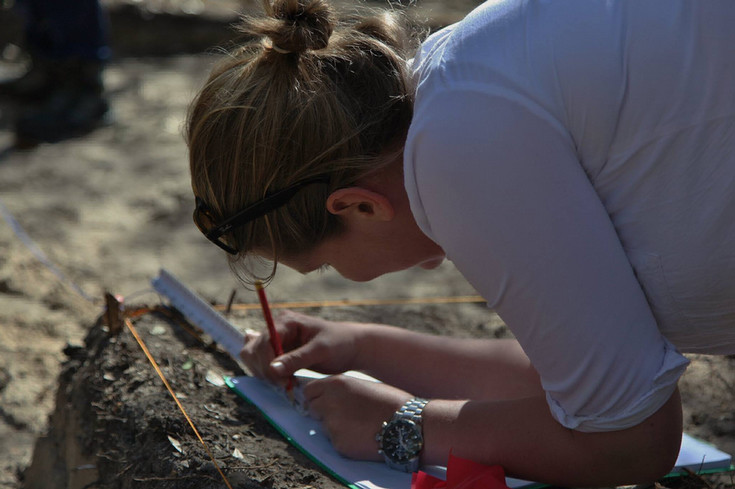
Charlie Goudge in the field.
November 29, 2023
Professor Charlie Goudge is a recipient of the Wenner-Gren Hunt Fellowship! This program supports emerging scholars whose work has the potential to transform our understanding of what it means to be human. A Hunt Postdoctoral Fellowship provides a stipend of up to $40,000 for 9 months of full-time writing. Goudge will use the Fellowship for her research on enslaved landscapes in Antigua. Read more.
November 28, 2023
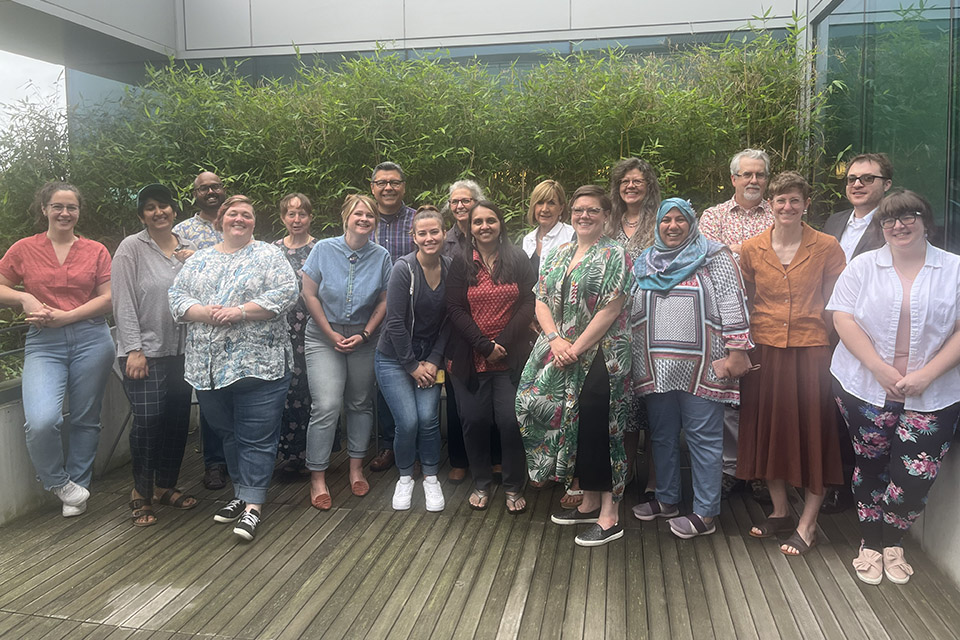
Professors Jonathan Anjaria and Nicholas Papas (Middlesex Community College) co-authored an article for Inside Higher Ed, "Partnering to Train Ph.D.s to Teach," about this summer's inaugural Institute for Reading and Writing Pedagogy at Brandeis, which brought together eight Brandeis Ph.D. students and eight Middlesex Community College faculty members. Developed by the Modern Language Association, the institute pairs universities with community colleges for a week of intensive training in pedagogy.
"Participants from both institutions characterized the conversations that took place as 'transformative' and even 'magical' in ways that not only made them better instructors but also refreshed their relationships to scholarship, writing and academe in general. The event was a success because of the powerful synergy between the theoretical and scholarly orientation of Ph.D. students and the practical teaching experience of the faculty. In other words, it was a success because it drew from the strengths of the people at both institutions."
The Middlesex faculty challenged the graduate students' "theoretical and idealistic orientation." Anthropology doctoral student Medha Asthana said, “We were given a reality check. [Students came into the program with] our analytic, deconstructing language, and the faculty would say, ‘on the ground, with our students, this is what works instead.’”
Participants learned about the importance of teaching reading and writing in all their courses, since students come from different educational backgrounds. Anthropology doctoral student Gowthaman Ranganathan reflected, “Four-year institutions like to pretend like we don’t need conversations on topics like how to read and write, but we absolutely do.”
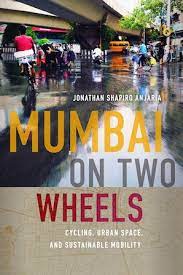
November 10, 2023
 Professor Jonathan Anjaria has published a new book, Mumbai on Two Wheels (University of Washington Press, June 2024).
Professor Jonathan Anjaria has published a new book, Mumbai on Two Wheels (University of Washington Press, June 2024).
From the publisher:
Mumbai is not commonly seen as a bike-friendly city because of its dense traffic and the absence of bicycle lanes. Yet the city supports rapidly expanding and eclectic bicycle communities. Exploring how people bike and what biking means in the city, Jonathan Shapiro Anjaria challenges assumptions that underlie sustainable transportation planning.Arguing that planning professionals and advocates need to pay closer attention to ordinary people who cycle for transportation or for work, or who choose to cycle for recreation, Mumbai on Two Wheels offers an alternative to the thinking that dominates mainstream sustainable transportation discussions. The book’s insights come from bicycle activists, commuters, food delivery workers, event organizers, planners, technicians, shop owners, and architects. Through ethnographic vignettes and descriptions of diverse biking experiences, it shows how pedaling through the city produces a way of seeing and understanding infrastructure. Readers will come away with a new perspective on what makes a city bicycle friendly and an awareness that lessons for a more equitable and sustainable urban future can be found in surprising places.
Advance praise:
"By shifting the temporal frame from future to present, Mumbai on Two Wheels focuses on the city as it is and not the city as it could be. Anjaria masterfully does this work by centering the people who cycle instead of privileging the perspective of those who work in the realm of speculation and comparative urban planning. Such an approach to urban anthropology, infrastructure studies, ethnography, and embodiment is a critical intervention in how we understand the lived experience of urban space."
- Maura Finkelstein, author of The Archive of Loss: Lively Ruination in Mill Land Mumbai
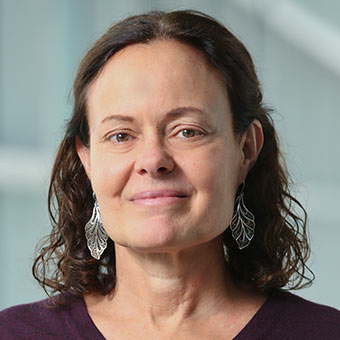
November 10, 2023
"There's this idea that to be a good person is to be in control, and that we have individual responsibility to be in good health so that we're not a burden on society. Younger people have the tendency to see aging as a kind of project that they're supposed to take control of." -Professor Sarah Lamb in the Nov. 10, 2023 Vogue Business interview, "Why beauty can't quit talking about anti-ageing."
November 10, 2023
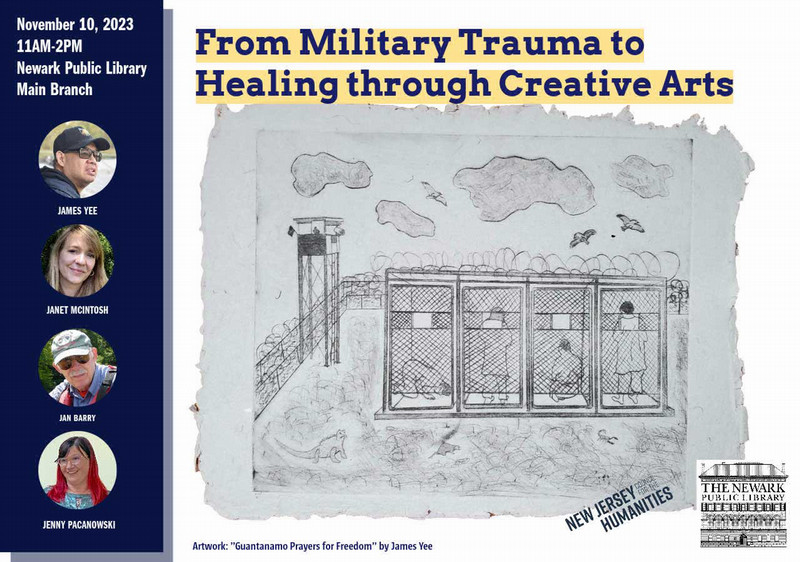
Professor Janet McIntosh, whose current research focuses on militarization and demilitarization, was among a panel of presenters at a Veterans Day event at Newark Public Library on November 10. Organized by the New Jersey Council for the Humanities, "From Military Trauma to Healing through Creative Arts" began with a conversation between Professor McIntosh and James Lee, veteran and author of For God and Country: Faith and Patriotism Under Fire. Yee served as an Army chaplain at Guantanamo Bay in the early 2000s and was accused of espionage when he reported the abuse of prisoners. Ever since the charges were dropped, Yee has been an activist for military justice while pursuing artistic expression as part of his healing.
The second half of the program featured Jan Barry, Jenny Pacanowski, and other veterans as they explored how writing, art, and other forms of creative expression can offer veterans pathways to healing from service-related trauma and transitioning into non-military life.
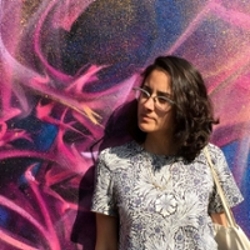
November 8, 2023
November 8, 2023 was the seventh annual First-Generation College Celebration. Started by the Council for Opportunity in Education and the Center for First-Generation Student Success, this celebration highlights the accomplishments and experiences of first-generation college students. It is observed by institutions throughout the United States. The Graduate School of Arts and Sciences talked with faculty and graduate students who were first generation students as undergraduates.
Anthropology professor Patricia Alvarez Astacio, who teaches the anthropology of dress and fashion and documentary filmmaking (among other courses), was the first in her family to earn an undergraduate degree. She said a welcome surprise on entering the university was "the amount of classes and fields of study that I didn't even know existed!" She overcame several challenges. "Finding the courage to talk to my professors was difficult. I went to a big public university in Puerto Rico where it was easy to get lost–it was a challenge to learn how credits worked, what classes I needed to take to fulfill my major requirements or how to figure out how to do a major and a minor; how to even get enrolled in classes that I wanted to take required a learning curve. I worked multiple part-time jobs and studied full-time; it was a challenge learning how to balance my class workload with my jobs. While many faculty were understanding of situations like that, others didn't care and I had to learn how to be organized and manage my time the hard way." Read the full GSAS interview and more about GSAS' participation in the Celebration.
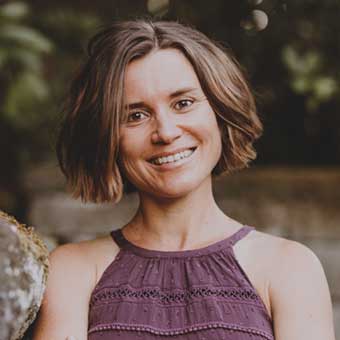
October 24, 2023
Anthropology Department research scholar Anita Hannig was quoted in a New York Times article about the effects of the language used by the media in describing aid in dying. The term "medical aid in dying," as opposed to "suicide," legitimizes a terminally ill patient's choice in how they die. “Medicine has that legitimating power, like it or not,” said Hannig. “That really removes a lot of the stigma.”
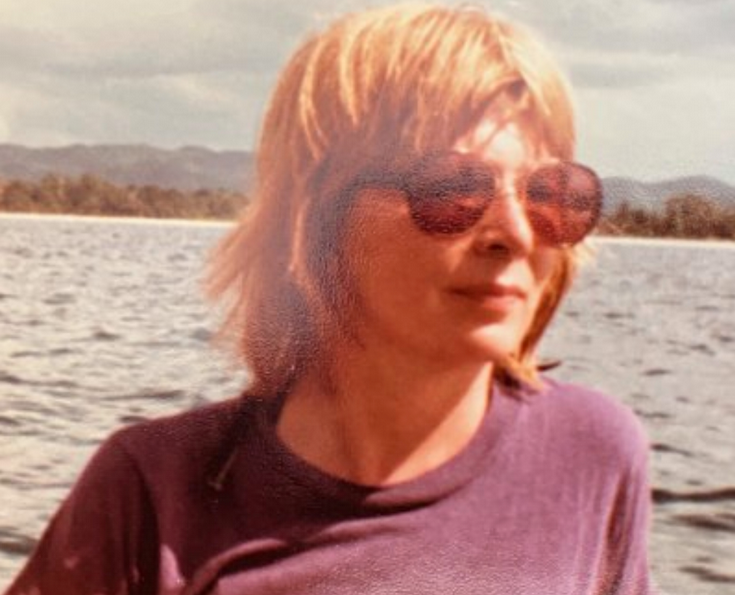
Barbara Ehrenreich
September 26, 2023
Professor Janet McIntosh was the sometime research assistant and longstanding friend of the public intellectual Barbara Ehrenreich, the activist, journalist, social critic, sardonic wit, and author of 21 books who died last year at the age of 81. Ehrenreich wrote extensively on the myth of the American Dream (including in her bestselling book Nickel and Dimed), gender inequalities, and health care, while asking big questions about the human species and, in her words, “where we went wrong.” On Thursday, Sept 28, Professor McIntosh joins speakers and panelists including Cornel West, Jia Tolentino, Matthew Desmond, and Bernie Sanders to discuss Ehrenreich’s intellectual and political legacy.
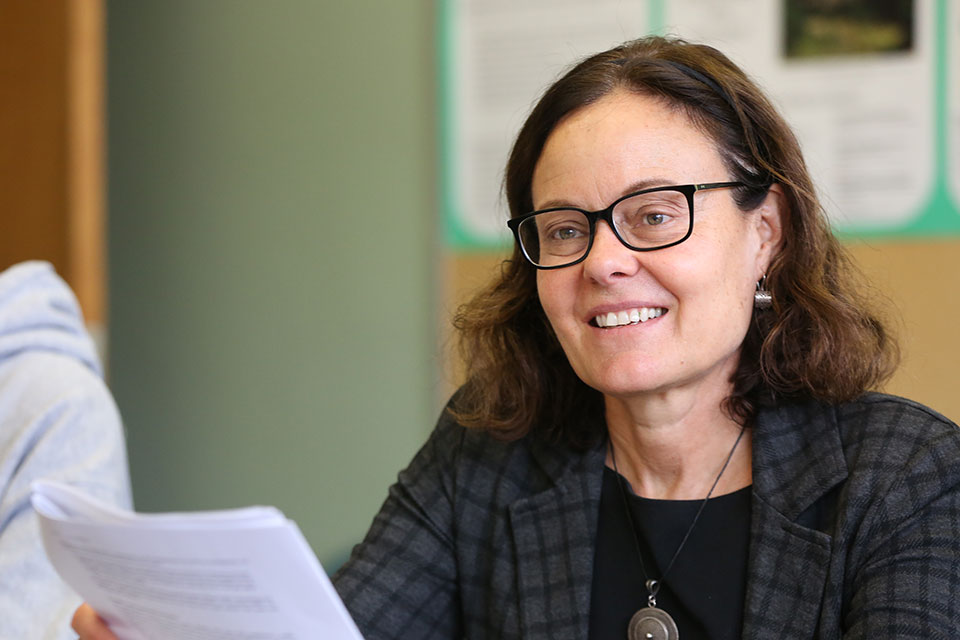
July 15, 2023
Professor Sarah Lamb was quoted in a July 15 article from The Washington Post, "TikTok's latest aging effect reveals America's obsession with youth." The article is about age filters on the social media platform and Americans' obsession with looking youthful.
“The concept of successful aging really came about after 1969,” Lamb said. “That’s when this idea developed that a good, moral person will take care of their body so that they aren’t a burden to their family or to society." Professor Lamb received a Carnegie research fellowship to study "successful aging."
“How societies construct aging culturally, legally, medically, and institutionally is a pressing global issue of human existence and human rights,” she said. “By bringing together diverse perspectives, my aim is to illuminate taken-for-granted assumptions, helping people envision other, more humane possibilities for making lives meaningful in older age, and diminish social inequalities tied to current successful aging visions.”
Read more about Professor Lamb's research, and read the Washington Post article.
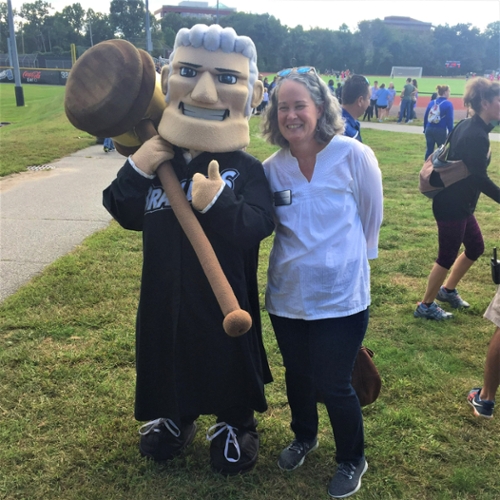
June 16, 2023
Outgoing dean Dorothy Hodgson, who is a professor of anthropology, has worked in East Africa for more than 30 years, primarily among Maasai communities in Tanzania. Her research has examined such topics as gender, ethnicity, cultural politics, colonialism, the missionary encounter, transnational organizing and the indigenous rights movement. She was interviewed by the School of Arts and Sciences about her career in academia, her time at Brandeis, and her plans for the future.
Here's what she had to say about anthropology: "I'd encourage everyone to consider pursuing an undergraduate degree in anthropology, which will prepare you well for a range of careers and a life of curiosity and learning. Cultural anthropology, my sub-field, will turn your world upside down, teach you to decenter your own worldview, [and also teach you] critical thinking, strong writing and oral communication skills, how to formulate research questions, then gather and assess evidence to answer them, and much more. As for pursuing a career in anthropology, my best advice, whatever your degree, is to take some time out in the world after you graduate from college to work and to explore the places or issues you are interested in."
Read the full interview from the School of Arts and Sciences.

May 24, 2023
Professor Elizabeth Ferry and her co-author Stephen Ferry were selected as one of just two finalists for the Society for Economic Anthropology 2023 Kate Browne Creativity in Research Award for their book "La Batea," an artistically beautiful and socially impactful look at the gold extractivism in Columbia and how a critical moment in gold markets and state/corporate cooperation impacted the lives of small-scale miners. Read more about the honor.
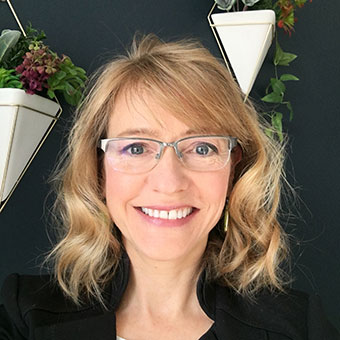
April 26, 2023
Professor Janet McIntosh has been awarded the Lerman-Neubauer Prize for Excellence in Teaching and Mentoring, one of Brandeis' highest honors!
A student nominator said, "Prof. McIntosh's passion for the subject is visible and contagious. It personally made me want to read and know more than was required for her class and go to office hours to discuss what I had learned and what I wanted to understand better. Her class also made me seriously consider Anthropology as my future major."
This is Janet's second major teaching award at Brandeis, as she also won the Michael L. Walzer '56 Award for Teaching in 2005.
April 25, 2023

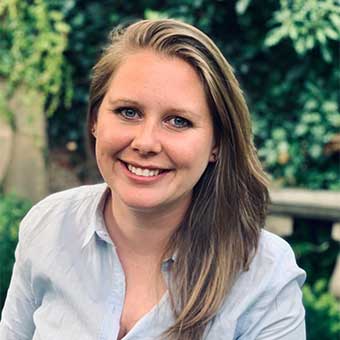 Professors Patricia Alvarez Astacio and Charlie Goudge received Mandel Faculty Grants for Public Humanities/Community Engagement. Astacio's project, "Backside," is a feature documentary that explores the daily life and expertise of the underrecognized migrant workers behind the Kentucky Derby. Goudge's project is called, "Gamble Heritage Monitoring and Resilience: Developing Simplified Multimodal Photogrammetry Monitoring Techniques as a Novel Tool for Community and Heritage Asset Resilience Building Against Climate Change." It explores the fragility of historical structures and archaeological sites in an unremitting spectrum of environmental hazards.
Professors Patricia Alvarez Astacio and Charlie Goudge received Mandel Faculty Grants for Public Humanities/Community Engagement. Astacio's project, "Backside," is a feature documentary that explores the daily life and expertise of the underrecognized migrant workers behind the Kentucky Derby. Goudge's project is called, "Gamble Heritage Monitoring and Resilience: Developing Simplified Multimodal Photogrammetry Monitoring Techniques as a Novel Tool for Community and Heritage Asset Resilience Building Against Climate Change." It explores the fragility of historical structures and archaeological sites in an unremitting spectrum of environmental hazards.

April 11, 2023
Professor Jon Anjaria was awarded a Whiting Foundation Fellowship for Higher Education, to fund a 3-week trip to South Korea this summer focused on Seoul's bicycle infrastructure. The project, "Sustainable Transportation and Active Travel in South Korea," explores how the city has transitioned from a car-oriented to a bicycle, walking and public transit-oriented system within just a few decades. The fellowship is meant to enhance Jon's teaching and is also highly relevant to his research projects.
Professor Anjaria also received a Teaching Improvement, Experimentation and Research Grant Award for the 2023-24 academic year. His project is "Making Pedagogy a Central Part of the Graduate School Experience."
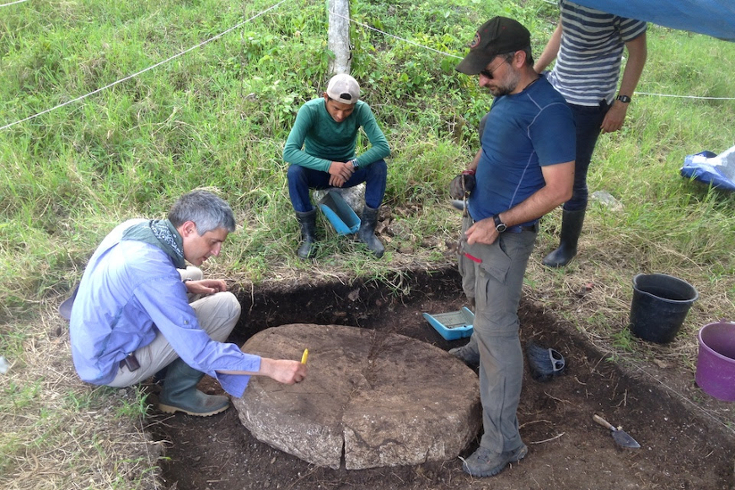
March 14, 2023
Professor Charles Golden and Alex Bazarsky '23 explore the secrets of the lost Maya city of San Tz'i' and the implications it has for our understanding of the ancient Maya population.
Watch the video on BrandeisNOW.

February 6, 2023
Professor Charles Golden and his archaeological research team were featured in the National Geographic documentary show, "Drain the Oceans," season five episode four, "Ancient Maya Resurrection."
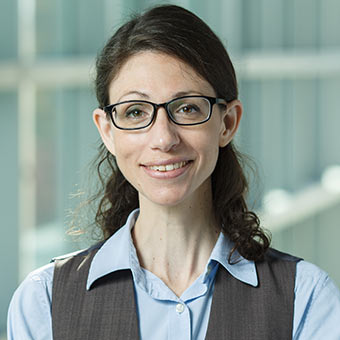
November 3, 2022
Ariel Ludwig, Florence Levy Kay Fellow in Machine Learning, Law and Racial Justice, published an op-ed on her conscientious objection to jury duty in The Baltimore Sun (Nov. 3, 2022).
"Potential jurors are asked a series of questions in a process called voir dire. These are often questions such as whether you know anyone involved in the case, have strong prejudices, have survived violent crime or are willing to find someone guilty. Potential jurors are excluded based on their responses, despite the supposed representativeness of juries. Abolitionists like me are routinely excluded because of questions about 'prejudices' or reticence to find someone guilty because of the consequences."
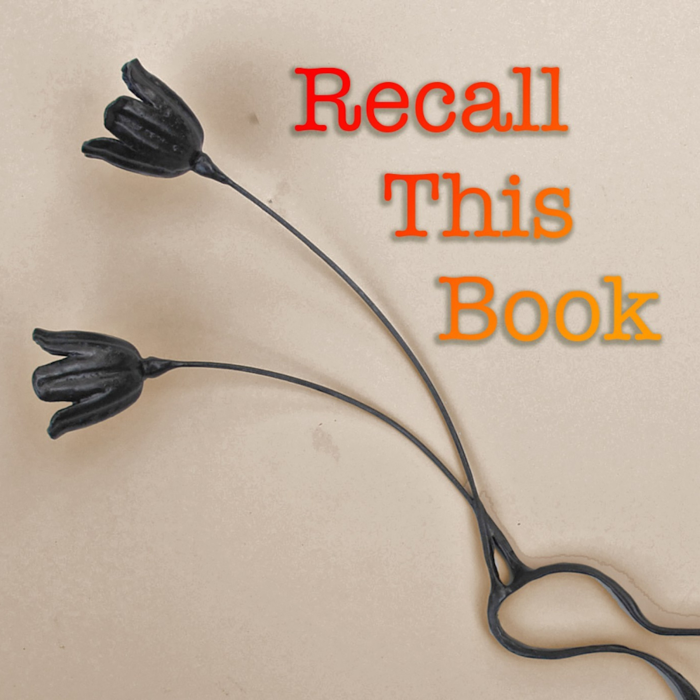
November 3, 2022
Professor Janet McIntosh's current book project on language in the military has prompted thoughts about the "implausible deniability" of "Let's Go Brandon" — a phrase that "mocks the idea we have to mince words." Professors Elizabeth Ferry and John Plotz, hosts of the podcast Recall This Book, talk with Prof. McIntosh about the language of U.S. alt-right movements.
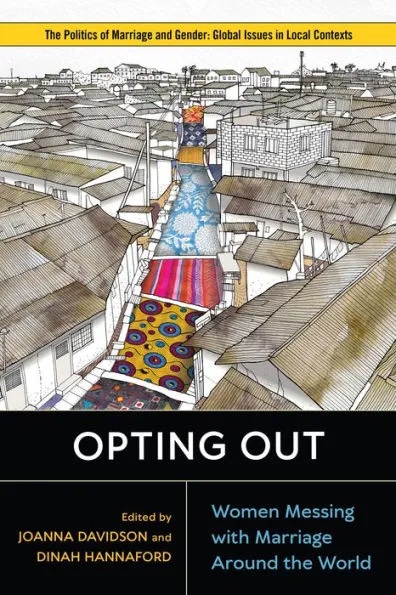
October 18, 2022
Professor Sarah Lamb had an article published in "Opting Out: Women Messing with Marriage Around the World." This volume was co-edited by Professor Joanna Davidson of Boston University, and the cover art is by Professor Emily Williamson Ibrahim.
"Opting Out" offers ethnographic portrayals of women in Africa, Asia and Latin America who are quietly opting out of marriage. Across these diverse geographic contexts, the volume shows that women are the (often unwitting, mostly unacknowledged) protagonists of profound changes in marriage, gender and kinship.
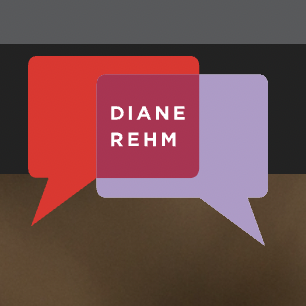
September 21, 2022
Professor Anita Hannig discussed her book, "The Day I Die," on the Diane Rehm podcast, On My Mind. Diane Rehm hosted NPR's "The Diane Rehm Show" for nearly 40 years.

September 20, 2022
The Associated Press quotes Professor Janet McIntosh on Trump's new enthusiasm for QAnon, expressed on his "Truth Social" platform. McIntosh also has a new essay in Anthropology News about the barbed humor, obvious pretense and intimations of violence in the "Let's Go Brandon" slogan.
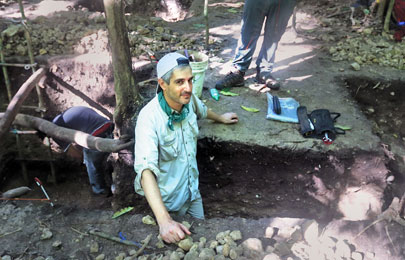
September 13, 2022
Professor Charles Golden was featured on the front page of the Science section of the Sept. 13, 2022, issue of the New York Times. The article is called "Unearthing a Maya Civilization That 'Punched Above its Weight' " and was written by Franz Lidz. The piece follows Professor Golden's work with the "long-sought ruins" of San Tz'i'.

August 25, 2022
"If a pregnancy is unintended, undesired, unsupported or unviable, it can spell the prospect of a future in which neither the parent nor the child will flourish. Releasing that life is a painful, excruciating choice — and sometimes not even a choice at all," says Professor Anita Hannig.
Read more from WBUR.
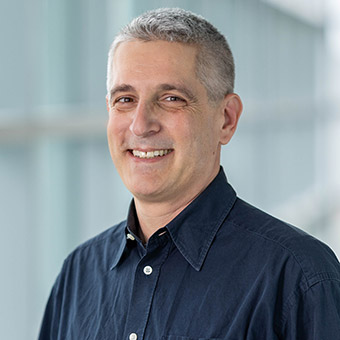
August 24, 2022
Professor Charles Golden has received funding from the Alphawood Foundation for "Revealing Landscapes of the Upper Usumacinta: Lidar Data Collection and Ground Verification in Chiapas, Mexico, and Peten, Guatemala."
Read more about some of Professor Golden's archaeological research.
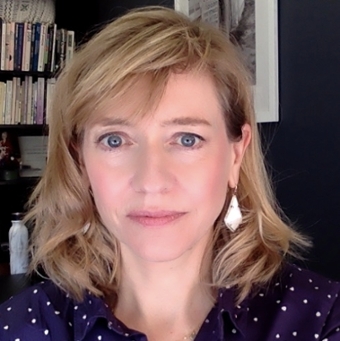
July 25, 2022
Brandeis Magazine recently interviewed Professor Janet McIntosh about Q's communication style, and Knowable magazine draws on her work on military language in their article about the concept of "moral injury."

July 13, 2022
Professor Jonathan Anjaria was featured in an Inside Higher Ed article about Brandeis' Connected PhD program, which gives funding to doctoral students for professional development. Prof. Anjaria is Brandeis' first faculty director of professional development for the graduate school, and had a lot to say about the value in PhD students thinking beyond university careers.
"It's assumed that that the two grad school tracks are the academic [job] track or non-academic track, but what I've seen is that the two tracks are actually going through grad school thinking about jobs vs. going to graduate school not thinking about jobs."
Read the article and learn about anthropology doctoral students' participation in the Connected PhD.

July 6, 2022
"Equating assisted dying with suicide isn't only antiquated or misleading — it's actually harmful. I have spent five years shadowing patients, families and physicians involved with assisted dying in America, and I saw how damaging this conflation can be. In my new book, 'The Day I Die: The Untold Story of Assisted Dying in America,' I explore the complexities and constraints of the choices that people who pursue an assisted death face."
— Professor Anita Hannig in an article she wrote for The Conversation, which was also featured in BrandeisNOW.
June 15, 2022
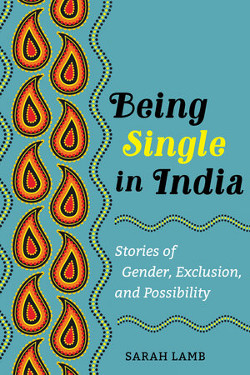 Professor Sarah Lamb's new book is out from University of California Press. "Being Single in India: Stories of Gender, Exclusion, and Possibility" explores what makes living outside marriage increasingly possible but still incredibly challenging for women living in India. From the publisher: "Arguing that never-married women are able to illuminate their society's broader social-cultural values, Lamb offers a new and startling look at prevailing systems of gender, sexuality, kinship, freedom and social belonging in India today."
Professor Sarah Lamb's new book is out from University of California Press. "Being Single in India: Stories of Gender, Exclusion, and Possibility" explores what makes living outside marriage increasingly possible but still incredibly challenging for women living in India. From the publisher: "Arguing that never-married women are able to illuminate their society's broader social-cultural values, Lamb offers a new and startling look at prevailing systems of gender, sexuality, kinship, freedom and social belonging in India today."
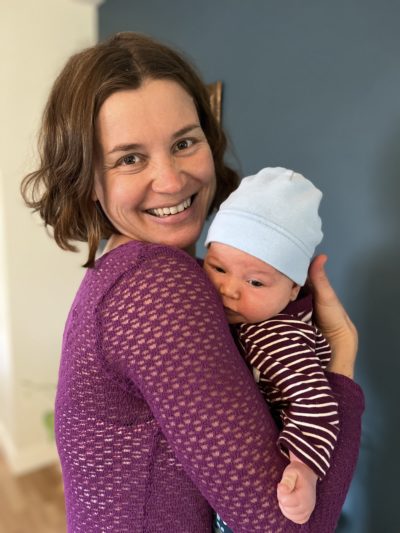
Professor Hannig and her daughter.
Photo Credit: David Neff
May 9, 2022
Professor Anita Hannig published commentary in WBU's Cognoscenti and was interviewed in Next Avenue. In her WBUR commentary, "On my first Mother's Day, I'm honoring the profound link between birth and death," she explores our culture's preference for births to deaths, and points out the sacred similarities between the two. In the Next Avenue interview titled, "We Have to Make a Concerted Effort to Be Less Alienated from Death and Dying," Professor Hannig discusses the barriers to assisted dying. "We have all the technology now, but our ethical and moral compass hasn't really caught up with how we should use it."
Professor Hannig's recently published book is called, "The Day I Die: The Untold Story of Assisted Dying in America" (Sourcebooks, May 2022). In this groundbreaking work, Hannig brings readers into the lives of ordinary Americans who go to extraordinary lengths to set the terms of their own death. Faced with a terminal diagnosis and unbearable suffering, they decide to seek medical assistance in dying ― a legal option now available to one in five Americans.
May 2, 2022
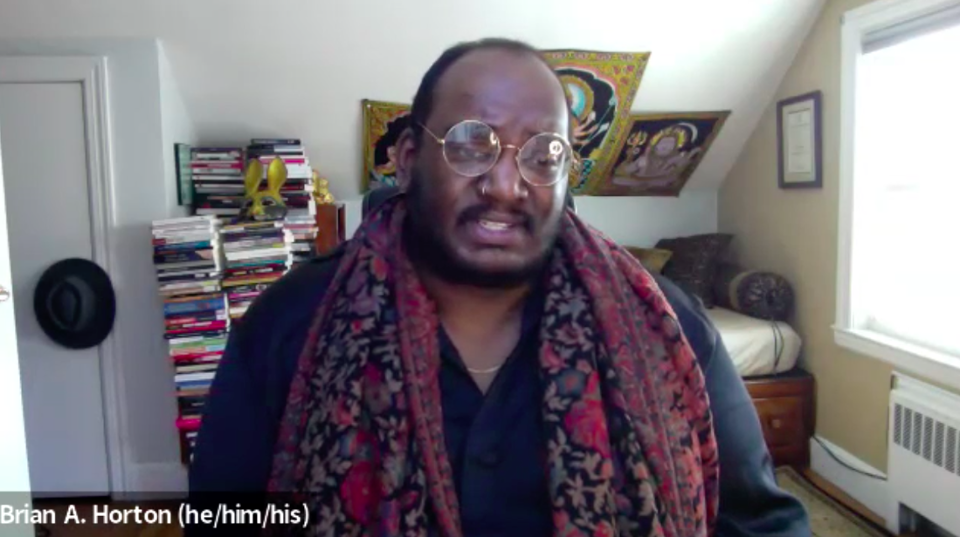 "What does it mean that we write about people's lives, while completely excising the searches for desire, for pleasure, for fun, for intimacy that people have. What does it mean that we often reduce people's lives to the precarity that they experience?"
"What does it mean that we write about people's lives, while completely excising the searches for desire, for pleasure, for fun, for intimacy that people have. What does it mean that we often reduce people's lives to the precarity that they experience?"
— Professor Brian Horton in the Mandel Center for the Humanities Faculty Spotlight series, which aims to spotlight the exciting work being done by Brandeis faculty in the humanities and humanities-adjacent fields.

April 26, 2022
Funded by the Marion and Jasper Whiting Foundation and the Program in Latin American, Caribbean and Latinx Studies, Professors Patricia Alvarez Astacio, Greg Childs (HIST) and Elizabeth Ferry will travel to four Caribbean island nations (Jamaica, Haiti, Puerto Rico and Cuba) in January 2023 to collect materials and make documentary short films on the afterlives of sugar plantations.

April 14, 2022
Professor Sarah Lamb has been awarded the School of Arts and Sciences Faculty Service Award. The award recognizes outstanding service contributions to departments, programs and the University by members of the School of Arts & Sciences faculty.
Department Chair Charles Golden writes, "To say that this award is richly deserved is an understatement. Sarah has filled every role possible in our department, worked tirelessly on behalf of the Social Sciences as Division Head, plays central roles in SAS, HSSP, WGS and has served on committees and working groups across campus. All the while she makes our community a better place with her teaching, mentorship, scholarship, collegiality and kindness."

April 13, 2022
The Brandeis Board of Trustees voted to promote Professor Charles Golden to the rank of full professor, "effective immediately." Congratulations, Charles! (P.S. — Subsequent to the release of this news story, Professor Golden was also named Social Sciences Division Head!)
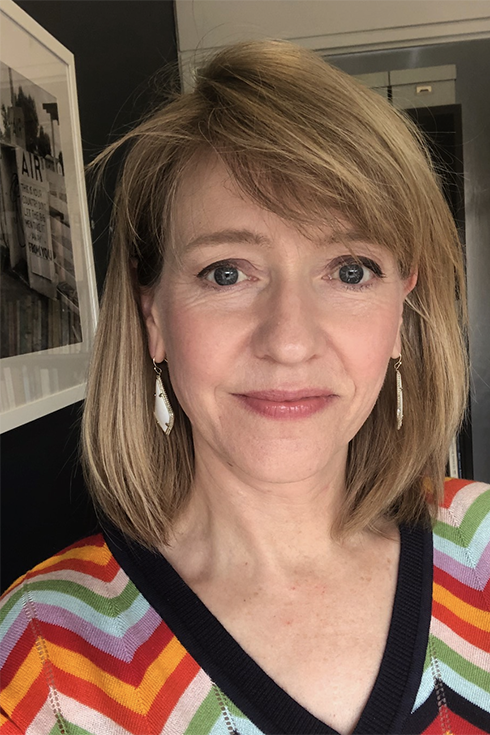
April 6, 2022
Professor Janet McIntosh has been awarded a National Endowment for the Humanities (NEH) Faculty Fellowship for Fall 2022. NEH fellowships, awarded to 80 scholars out of over 1,100 yearly applicants, are designed to support "individuals pursuing projects that embody exceptional research, rigorous analysis and clear writing." Professor McIntosh will take the fellowship time to work on a book about language and militarization in the United States.

April 4, 2022
Professor Anita Hannig has written an opinion piece for The Seattle Times, entitled, "Allow terminally ill patients from out of state to access aid-in-dying." She discusses the move by the state of Oregon to eliminate a residency requirement for medical assistance in dying.
"As a cultural anthropologist, I spent five years shadowing patients, families and physicians at the front lines of assisted dying, mostly in the Pacific Northwest. I have seen firsthand the tremendous relief an assisted death can bring. I also met very sick patients who lived in states without access to aid-in-dying, from Massachusetts to Texas, who had neither the time nor the resources to upend their lives and establish residency in a different state. At a time of great need and despair, they were shut out of accessing what they saw as a compassionate death."

March 31, 2022
Professor Brian Horton has been awarded an American Council of Learned Societies (ACLS) Fellowship for his project, "Shimmers of the Fabulous: Public Sex and Intimate Touch in Queer and Trans Bombay."
The ACLS Fellowship Program supports exceptional scholarship in the humanities and interpretive social sciences that has the potential to make significant contributions within and beyond their fields. This year the program will support 60 scholars selected from nearly 1,000 applicants through a rigorous, multi-stage peer review process.
"Shimmers" is a multi-sited ethnography of queer sexpublics — spaces for queer and trans intimacies, desire, and touch — across Bombay. Drawing on over 28 months of fieldwork, each of the manuscript’s five chapters unfolds a different site — nightlife, the police station, pride, virtual worlds and home. Through interviews, participant observation, archival research, and virtual ethnography across each of these sites, Horton's book explores how queer and trans lives might be lived outside of and against the reaches of cultural intelligibility and legal recognition. A core project in this book is to retrain scholarly gazes toward sexual and gender minorities in the global South. By moving from courtrooms and clinics — which have emphasized queer and trans emergence in India through law, rights and identity categories — to queer sexpublics, the project explores desires to touch and be touched as crucial to queer and trans worldmaking.
March 23, 2022
 Professor Elizabeth Ferry was awarded a Mandel Center for the Humanities Public Humanities Grant for a collaborative project with the Bogotá-based non-profit organization OjoRojo Fábrica Visual to facilitate and document dialogue around the War of Villarrica (1954-57) in rural areas of Colombia most affected by these events.
Professor Elizabeth Ferry was awarded a Mandel Center for the Humanities Public Humanities Grant for a collaborative project with the Bogotá-based non-profit organization OjoRojo Fábrica Visual to facilitate and document dialogue around the War of Villarrica (1954-57) in rural areas of Colombia most affected by these events.
While this war has largely been erased from the collective memory, the objective of this project is to build on and fortify efforts in Villarrica to inform the Colombian public about this censored history. The planned exhibition is designed as a "wall newspaper" that functions both as a large-format newspaper and can unfold and attach to the wall easily, creating a versatile and inexpensive exhibit that works in all sorts of public spaces, including schools, community centers and libraries. The project will involve organizing informal small-group discussions about the exhibition and the war in Villarrica and to document responses to them. These discussions will amplify the effect of the exhibitions and will aid OjoRojo in planning future events.
Public Humanities Grants support Brandeis faculty working on experimental and/or publicly engaged projects in the humanities, the arts and the humanistic social sciences. These include projects that have audiences beyond the academy, projects in the experimental or digital humanities, applied humanities work, and/or collaborative projects that create and sustain mutually beneficial partnerships with community organizations, museums, libraries or other cultural spaces or media.
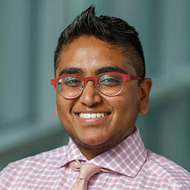 Professor V. Varun Chaudhry was awarded a Mandel Center for the Humanities Faculty Research Grant for his book project, "Incorporating Transgender: Race and Resources in the Fight for Trans Justice." The book maps how transgender and gender nonconforming (TGNC) communities of color and their allies identify and garner resources from nonprofit and philanthropic organizations. Amidst ongoing calls from academics and activists to abandon or abolish state institutions, the book reveals how TGNC communities of color are navigating these flawed institutions to better sustain their lives.
Professor V. Varun Chaudhry was awarded a Mandel Center for the Humanities Faculty Research Grant for his book project, "Incorporating Transgender: Race and Resources in the Fight for Trans Justice." The book maps how transgender and gender nonconforming (TGNC) communities of color and their allies identify and garner resources from nonprofit and philanthropic organizations. Amidst ongoing calls from academics and activists to abandon or abolish state institutions, the book reveals how TGNC communities of color are navigating these flawed institutions to better sustain their lives.
Faculty Research Grants support research projects in the humanities, the arts or the humanistic social sciences.
And read about anthropology grad students who swept the category of Mandel Dissertation Research Grants!
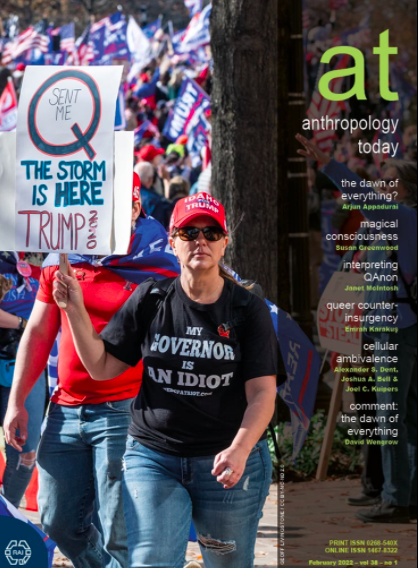
February 8, 2022
In this UK-based anthropology magazine, Professor Janet McIntosh describes the verbal art with which the mysterious and oracular figure of Q managed to enlist millions of enthusiasts through the Internet. Supporters felt empowered to engage in high-stakes interpretive work, while Q solidified their confidence that an alt-right state waits in the wings.
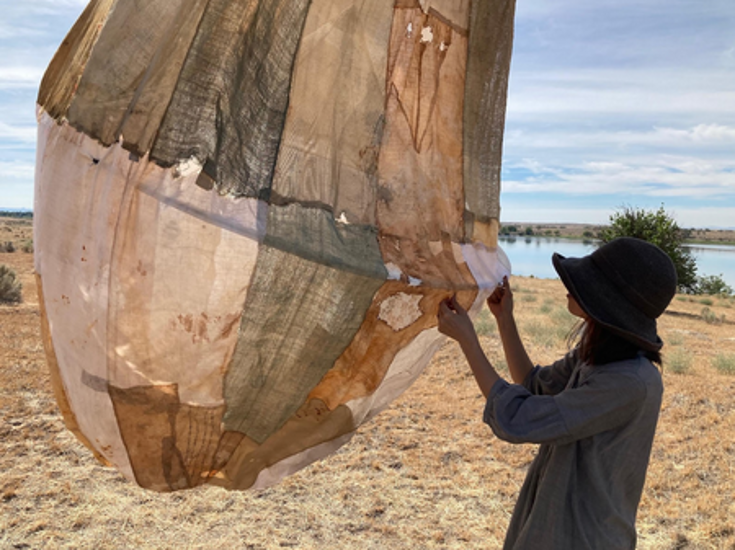
Artist assembling lower half Fat Man assemblage, containing kimono panels.
Photo Credit: Irene Lusztig and Helki Frantzen / The Asia-Pacific Journal
January 1, 2022
From The Asia-Pacific Journal:
In August 2021, Yukiyo Kawano, a third-generation Hiroshima hibakusha, was refused permission to install her sculptural evocation of the Nagasaki bombing, at the first commemoration of the atomic bombings within the National Park Service’s Manhattan Project National Historical Park at Hanford, Washington, where plutonium for the “Fat Man” device was produced.
The artist nonetheless raised the piece near the restricted Hanford zone. Schattschneider and Auslander consider the work’s complex ritual symbolism and the Park’s resistance to interpreting the impact of nuclear weapons and the legacies of environmental toxicity associated with plutonium production at Hanford during WWII and the Cold War.
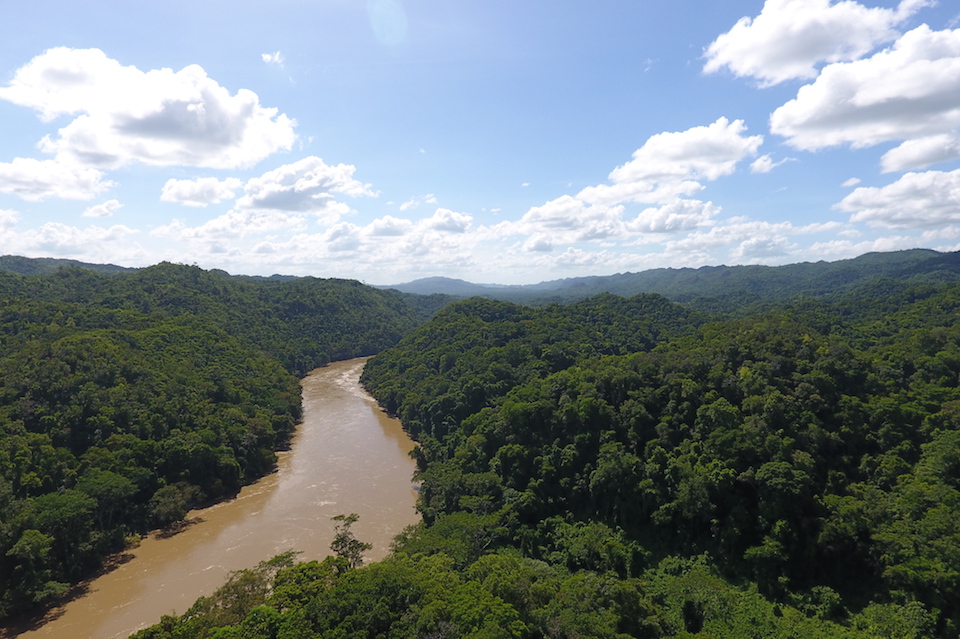
November 29, 2021
New research led by Professor Charles Golden and Professor Andrew Scherer of Brown University, with help from Brandeis graduate student Van Kollias and undergraduate Alex Bazarsky ('23), suggests the truth may not be so simple.
The team of researchers found signs that communities in the Western Maya Lowlands were not merely victims of climate change, struggling for agricultural resources in the midst of a drought when Maya civilization fell between the 8th and 9th centuries. Instead, the residents of the three ancient kingdoms in the study region met the challenges of climate change and conflict in very different ways.

August 10, 2021
Professor Charles Golden, a Mesoamerican archeologist who's closely studied the Maya since 1993, says it wasn't climate alone that led to the so-called collapse. Political issues, such as loss of trust in the government, may have also played a role, along with issues of succession.

July 19, 2021
Profs. Ferry and Plotz talk with Dr. Laurence Ralph, professor of anthropology at Princeton University. Dr. Ralph is the author of "Renegade Dreams: Living through Injury in Gangland Chicago" (2014) and "The Torture Letters: Reckoning with Police Violence" (2020). The latter book discusses the history of the open secret of police torture in Chicago.

June 1, 2021
Anita Hannig shares her thoughts on the connection between COVID-19 and a culturally embedded avoidance of our mortality.

May 25, 2021
Reading poetry over the phone, Professor Ferry with her brother and her father, renowned poet David Ferry, find an antidote to loneliness dring the COVID-19 pandemic.

April 21, 2021
Starting July 1, 2021, Professor Anjaria will take on the newly created role of Faculty Director of Professional Development at the Graduate School of Arts and Sciences for a three-year term. He will be re-imagining and re-building the career infrastructure for the graduate school, and serving as the primary faculty point person for graduate student professional development.
His work will help create and implement a new vision for the PhD experience at Brandeis that ensures students are prepared to take advantage of a variety of professional opportunities after graduation.

April 15, 2021
Janet McIntosh discusses the relationship between fascistic fantasies and cryptic signalling in the age of QAnon, as part of a collection of essays on American fascism for Cultural Anthropology's Fieldsights series.
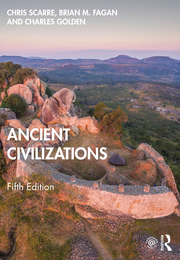
March 25, 2021
"Ancient Civilizations" offers a comprehensive and straightforward account of the world’s first civilizations and how they were discovered, drawing on many avenues of inquiry including archaeological excavations, surveys, laboratory work, highly specialized scientific investigations, and both historical and ethnohistorical records.
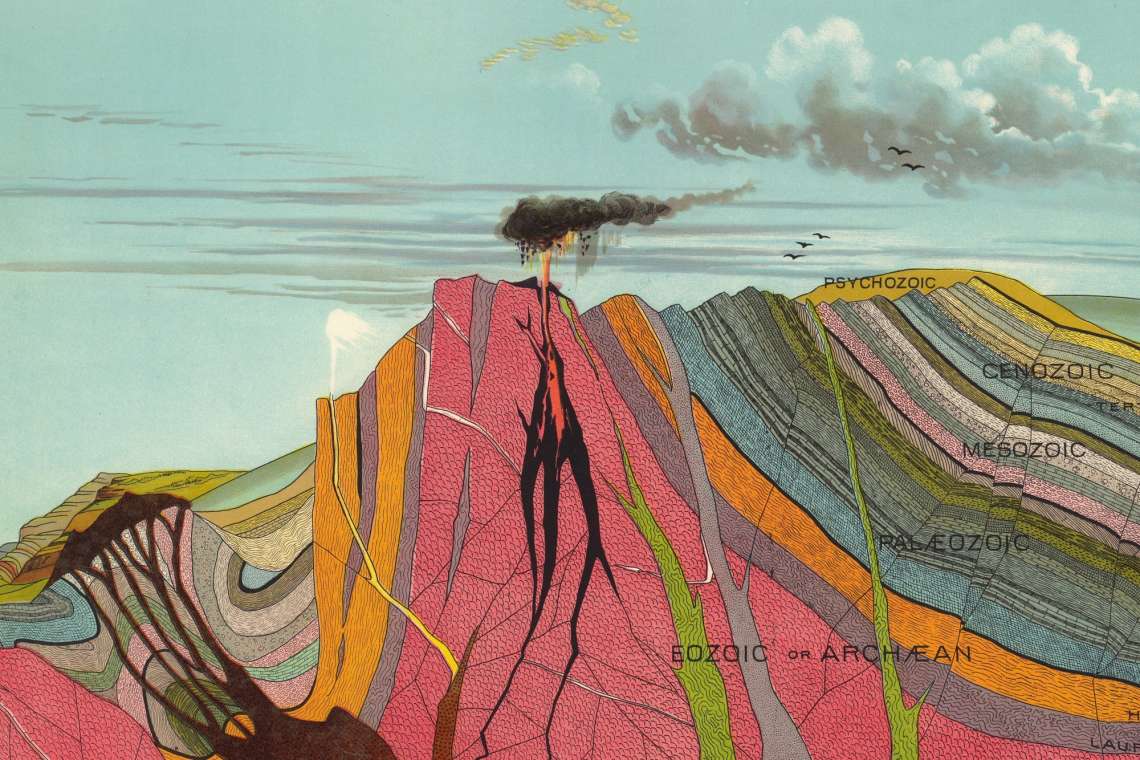
March 25, 2021
Elizabeth Ferry reflects on recent anthropological approaches to inorganic worlds as part of a collective submission to Cultural Anthropology's Fieldsights series, and proposes the concept of "the inorganic slot" (adapted from Michel-Rolph Trouillot's famous work on "the savage slot") to think about the earth sciences in histories of extractive racial capitalism.
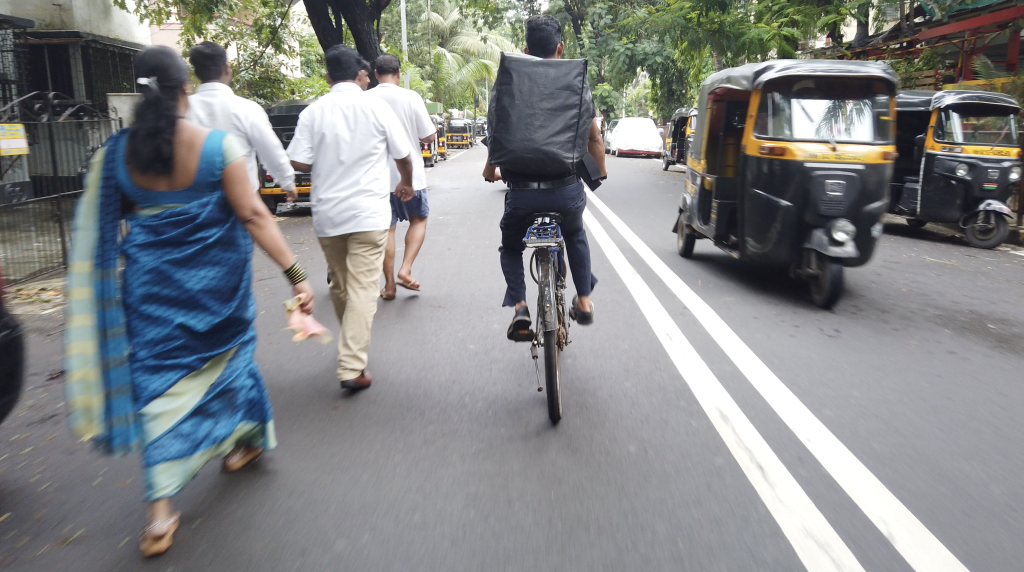
March 25, 2021
Prof. Jon Anjaria's article for the website Ethno Marginalia describes his research on cycling in Mumbai.
February 24, 2021
In a discussion of the Biden administration's emphasis on an inclusive lexicon, the New York Times quotes Prof. Janet McIntosh on how Donald Trump sought to refashion the relationship between words and reality.

January 13, 2021
Before a crowd of thousands marched to the Capitol and violently breached the building, they listened to a speech from President Donald Trump outside the White House for more than an hour. It was a culmination of communication for Trump and his most fanatical supporters since the presidential election on Nov. 6.
What had they been saying? Why are these words important? Janet McIntosh, professor of linguistic anthropology and co-editor of the book "Language in the Trump Era: Scandals and Emergencies," discussed these questions with BrandeisNOW.

November 24, 2020
Professor Anita Hannig is now working on the first book in the two-part series, "The Day I Die: The Troubled Quest for a Medically Assisted Death in America," an expose of the state of assisted dying. This book will touch on the law, the medicine, and the social and emotional components of an assisted death, culminating in a seamless call for legislative change. The second publication will be a prescriptive book that outlines the considerations and hurdles for those directly facing end-of-life decisions.
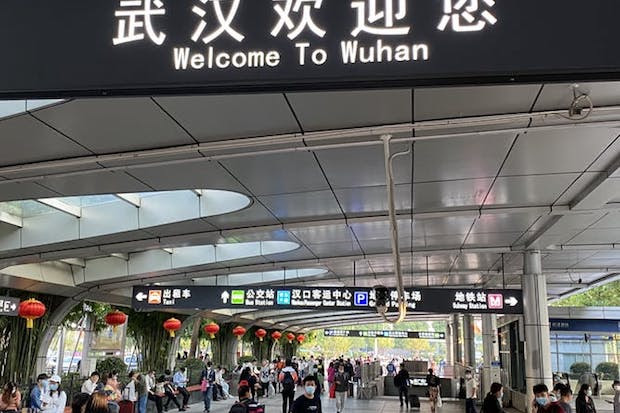
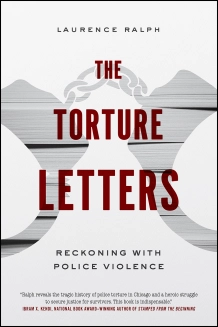
October 30, 2020
“People are always reckoning. People are always trying, no matter how overwhelming the odds may be, people are always trying to fight back.”
Elizabeth Ferry and John Plotz speak with anthropologist Laurence Ralph about his 2020 book "The Torture Letters: Reckoning with Police Violence" in a recent Recall This Book podcast. The book relates the decades-long history in which hundreds of people (mostly Black men) were tortured by the Chicago police. It is framed as a series of open letters that explore the layers of silence and complicity that enabled torture and the activist movements that have helped to uncover this history and implement forms of collective redress and repair.
October 20, 2020
All language is "code" of sorts, but Donald Trump and his base often act as if they have their own signals, interpreting the same presidential utterances in very different ways from his critics. The subject of this article is explained in greater detail in "Language in the Trump Era: Scandals and Emergencies" in chapters including: “Language and Trump’s White Nationalist Strongman Politics” by Janet McIntosh.

October 13, 2020
In the run-up to the presidential election, BrandeisNOW asked faculty to provide analysis and insight into some of the most pressing issues facing the country. This article is part of the series.
Infectious disease specialists warned for years of the "Big One," likely an influenza pandemic, that lurked on the horizon. But despite these looming concerns, we were still not prepared for the current outbreak.
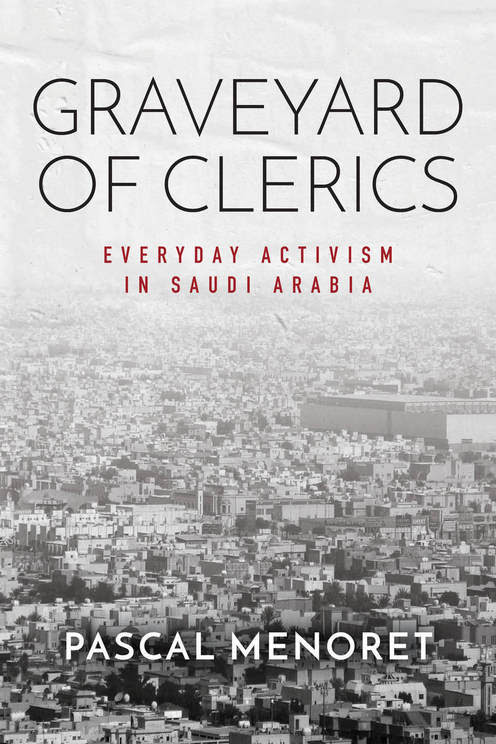
September 15, 2020
Professor Menoret talks about his latest book, "Graveyard of Clerics," with George Washington University's Marc Lynch on the POMEPS podcast.
In the book, he tells the stories of the people actively countering the Saudi state and highlights how people can organize and protest even amid increasingly intense police repression.
Menoret explains, “Basically what happens in the suburbs is that it’s a fixed place where people could congregate and create mass movements by the presence or the co-presence of their bodies. On the street what you have is moving entities-moving devices-moving tools, automobiles that can be used to reconstitute movements to protest sometimes and to create that effect of mass that might change the political dynamic in the country.”
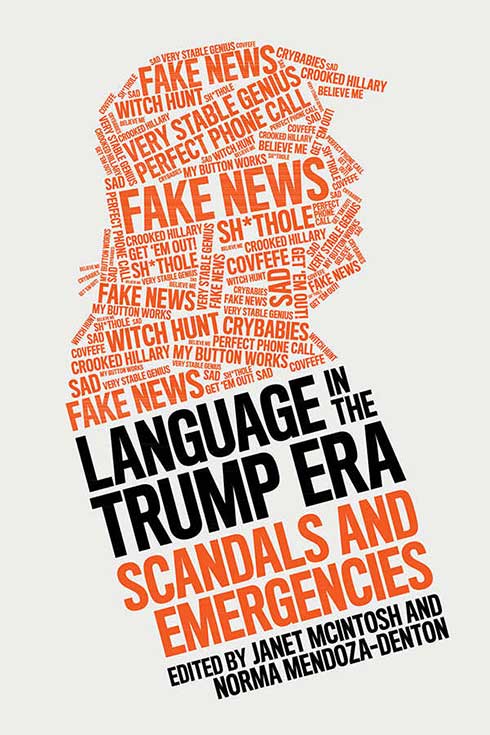
September 8, 2020
Professors McIntosh and Mendoza-Denton co-authored and co-edited this volume, which Judith Irvine (Edward Sapir Distinguished University Professor at University of Michigan) has called "an indispensable resource for anyone troubled by the polarizing and demagogic political discourse of the Trump era."

August 7, 2020
An article in Scientific American about language ideologies mentions Professor McIntosh's work on language and essentialism, focusing on her theoretical concept of "linguistic transfer": the problematic ideology that by speaking a new language, a person may — perhaps suddenly and somewhat mystically — take on the psychic properties of other people who speak that language.
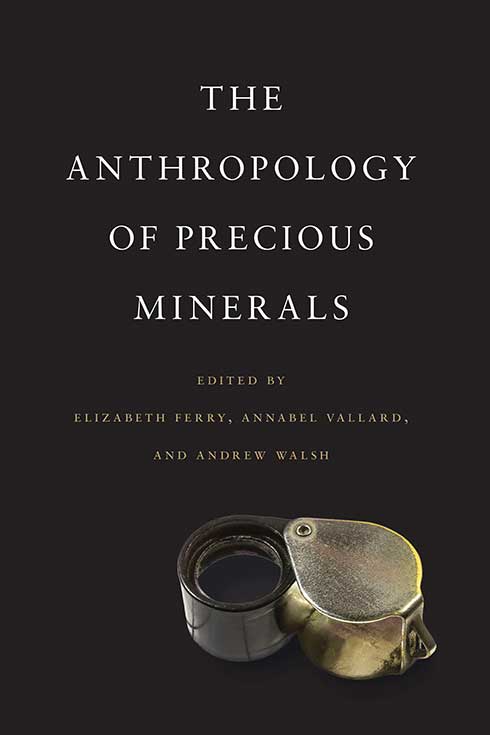
Why do people single out gold, sapphires, diamonds and other minerals as particularly "precious?" What makes precious minerals "precious?" Drawing from ethnographic and cross-cultural research, this collection of anthropological essays and case studies answers these questions by exploring humans’ multifaceted relationships with the minerals they deem "precious."
"The Anthropology of Precious Minerals" addresses the entanglement of humans and minerals, with a particular focus on the practices of scrappers, miners and hunters as they work to extract value. The editors draw from history, archaeology, and ethnography, and remind us that "preciousness" must always be understood in relation to complex cultural, political-economic and semiotic systems of value.

July 27, 2020
Recall This Book is a podcast that explores contemporary issues by looking at books that shaped the world we inherited. Each episode involves a conversation with a guest that focuses on books that shed light on a contemporary issue or event.
The podcast is now being produced remotely, via Zoom, and the episodes in the wake of the COVID-19 pandemic have shared a common theme: “Books in Dark Times.”

July 21, 2020
Based on four years of living and conducting fieldwork in Saudi Arabia, "Graveyard of Clerics: Everyday Activism in Saudi Arabia" takes up two global phenomena intimately linked in Saudi Arabia: urban sprawl and religious activism.
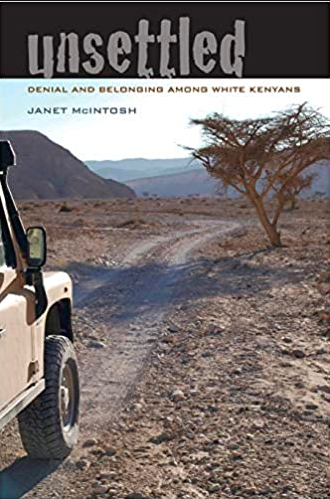
July 15, 2020
The uneasy nature of white Kenyans’ sense of belonging in the country is unraveled and analyzed in Janet McIntosh’s fascinating book "Unsettled: Denial and Belonging Among White Kenyans." Based on extensive in-depth interviews, and structured poetically into different themes which explore varying components of the white Kenyan experience, McIntosh’s book reveals the complex and often ambivalent positions of white Kenyan subjectivities in contemporary Kenya.
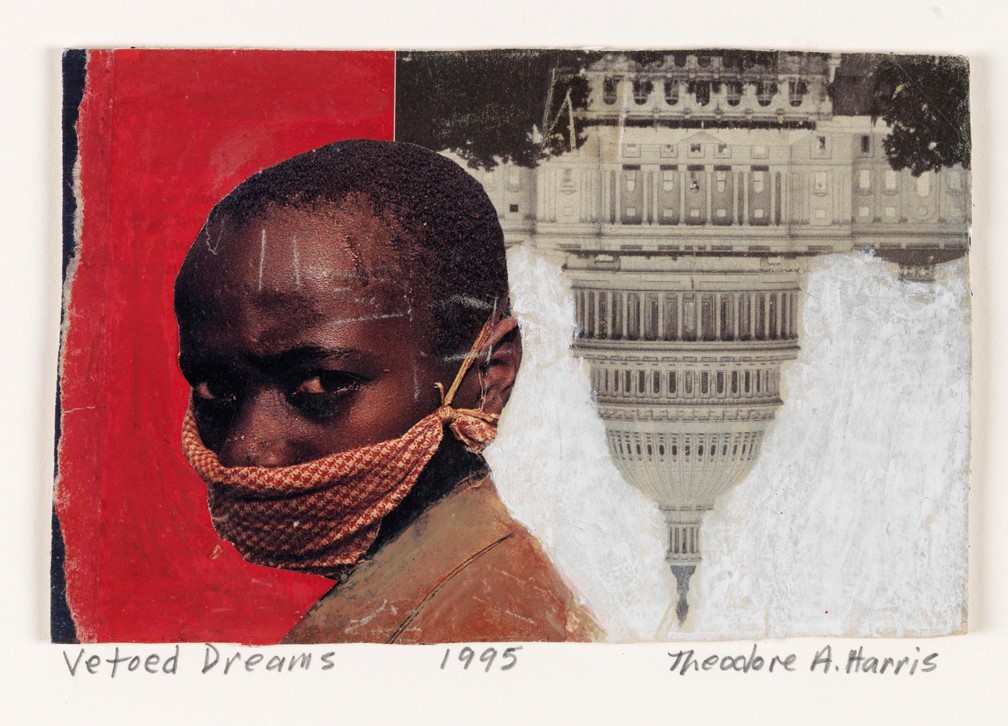
June 22, 2020
Art Beyond Quarantine explores artistic responses to COVID-19 the world over, with particular attention to dynamics of social justice, cultural difference and the ritual dimensions of image-making. Founding editor Mark Auslander (Visiting Research Scholar in the Department) and contributing editor Associate Professor Ellen Schattschneider emphasize anthropological perspectives and social theory as they explore how artists around the world are engaging with the pandemic and its complex local impacts. Further commentaries, as well as suggestions about new relevant works of art, are most welcome from Brandeis faculty and students!

June 22, 2020
This appointment recognizes "exemplary accomplishment" as a scholar in the humanities and humanistic social sciences, as well as a commitment to teaching and mentorship that has inspired countless Brandeis students and served as a model for our colleagues across the university.
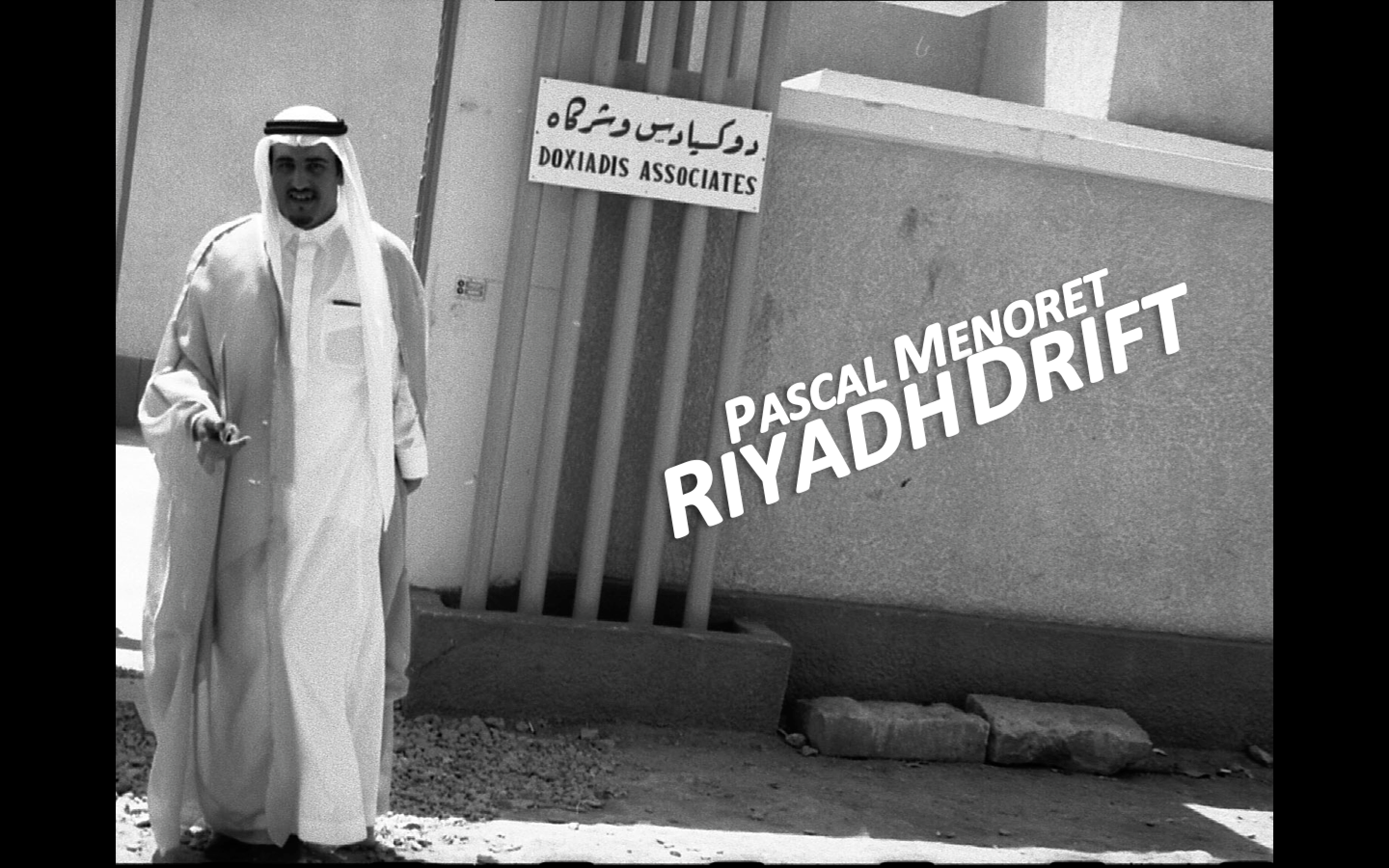
June 6, 2020
He presents the research that led to the writing of "Joyriding in Riyadh" (2014) and "Graveyard of Clerics" (2020), and speaks about the undergrad research behind the "Abu Dhabi Guide" that he edited in 2014.
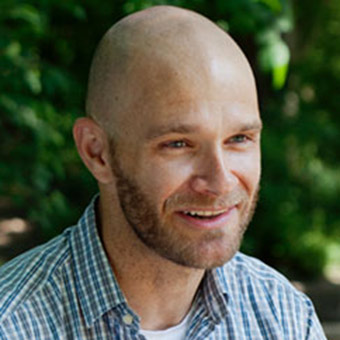
May 29, 2020
We are pleased to announce our colleague Pascal Menoret has been promoted to associate professor with tenure in the Anthropology Department. Pascal also has a joint appointment at the Crown Center, as Renée and Lester Crown Professor of Modern Middle East Studies. Congratulations, Pascal!

May 15, 2020
Professor Janet McIntosh blogs about Trump's use of language, particulary as it relates to the COVID-19 pandemic in advance of her upcoming anthology, "Language in the Trump Era: Scandals and Emergencies."

May 4, 2020
The unfolding COVID-19 pandemic magnifies a fact that usually dwells in the basement of our consciousness: We spend our entire lives under the shadow of mortality. Just in this moment, all of us are being made acutely aware of it. Culturally, we work so hard to uphold the boundary between life and death, and the events of the last few weeks are making that line appear unnervingly thin. Might we use the shock of this reality check to embrace our limited time here?
March 28, 2020
In an interview published in The Atlantic, anthropology professor Elanah Uretsky suggests cooperation on health projects between the U.S. and China that existed before the Trump presidency could have helped uncover coronavirus sooner.
February 27, 2020
In Fieldsights, published by the Society of Cultural Anthropology, Brandeis MA alum Scott Schnur (now a doctoral student at Emory) interviews Professor Elizabeth Ferry about her approach to teaching anthropological theory to graduate students.
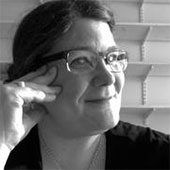
August 24, 2019
"Women were really, really trying to get away from a capitalist-minded mentality," Dr. Luis said. "But it does come down to the fundamental problem of, how do you get the land in the first place? That kind of thing shapes the kind of end result of the community that you've got."

August 8, 2019
A joint project with her brother Stephen Ferry, Professor Ferry's book "La Batea: Impressions of Gold in Colombia" won first place in the Society for Humanistic Anthropology's 2019 writing contest.
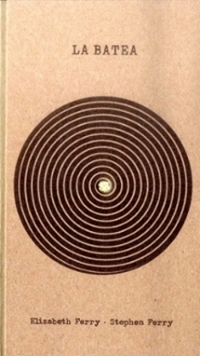
May 13, 2019
"La Batea" won first place in the category of Best Photography Book from POY Latam (Pictures of the Year Latin America)

April 23, 2019

April 18, 2019
Professor Jonathan Anjaria has received the Mellon/ACLS Scholars & Society Fellowship 2019.
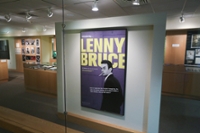
April 12, 2019
In Professor Michael Prentice's fall course Language in American Life, the class explored topics ranging from playground politics to law school lectures, from monoglot standards to media neutrality with a focus on linguistic anthropology. For the students' mid-term essay, Professor Prentice wanted them to think through some new empirical material.
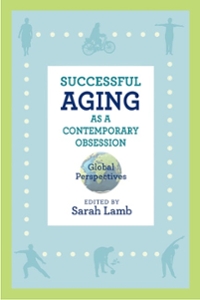
February 27, 2019
Edited by Professor Sarah Lamb, "Successful Aging as a Contemporary Obsession" was reviewed by the Anthropology News. The book is a timely, thought-provoking collection of sociological and anthropological studies that critically tackles the neoliberal, Global North paradigm of healthy-active-successful aging.

Professors Elizabeth Ferry (Anthropology) and John Plotz (English) launch an interdisciplinary podcast. Recall this Book explores contemporary issues by looking at books that shaped the world we inherited.
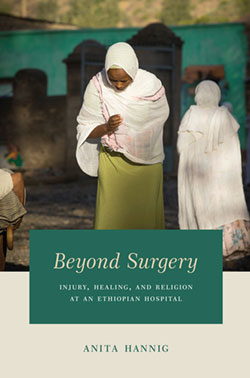
November 15, 2018
Professor Anita Hannig's "Beyond Surgery: Injury, Healing, and Religion at an Ethiopian Hospital" has been awarded the Eileen Basker Memorial Prize by the Society for Medical Anthropology. "The prize is awarded to the work judged to be the most courageous, significant and potentially influential contribution to this area of scholarship."
Read more about the prize and Professor Hannig's book.
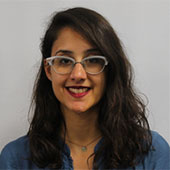
August 28, 2018
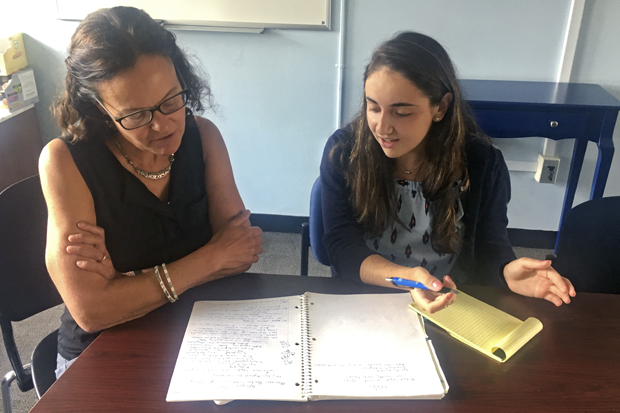
Anthropology professor Sarah Lamb (left) reviews research notes with Gianna Petrillo '19.
August 2, 2018

June 14, 2018
Professor McIntosh contributes to conversation around kofia in "World on the Horizon: Swahili Arts Across the Indian Ocean."
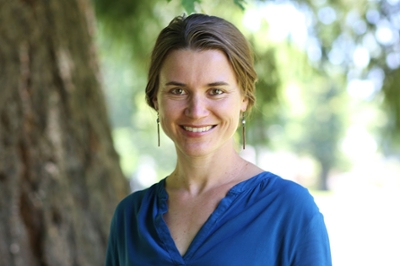
April 22, 2018
Students who nominated Hannig said:
"Professor Hannig's course, Medicine, Body and Culture, challenged me to think about medicine and healing through cross-cultural lenses. Professor Hannig fosters student participation through discussion questions and is patient as students negotiate their own experience with other cultures' experiences and explanations of illness and disease. She encourages students to meet with her in office hours and provides guidance for assignments and research. Outside of the classroom, Professor Hannig is involved with anthropology student events and promotes anthropology to students."

Photo Credit: Stephen Ferry

October 3, 2017

Jonathan Anjaria
September 16, 2017

Charles Golden
August 25, 2017
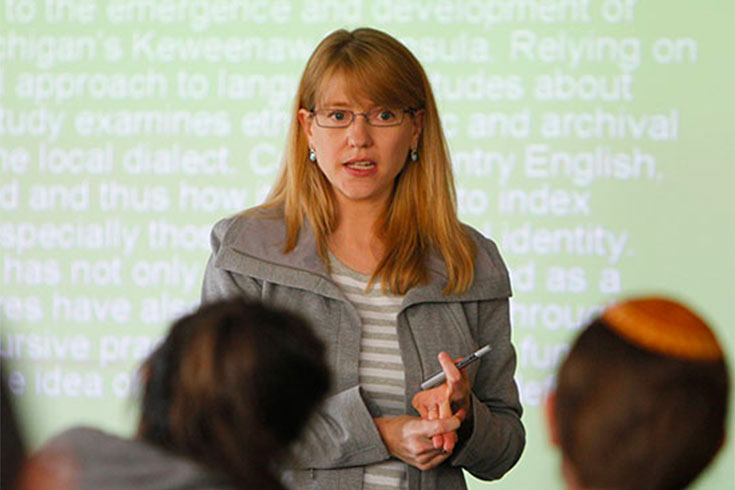
Janet McIntosh
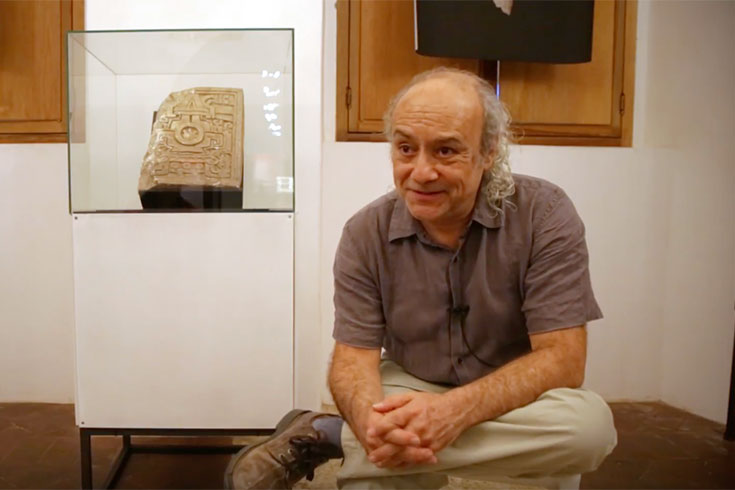
Javier Urcid
August 14, 2017
In Spanish
April 10, 2017
Find the prize-winning article on Anthrosource.
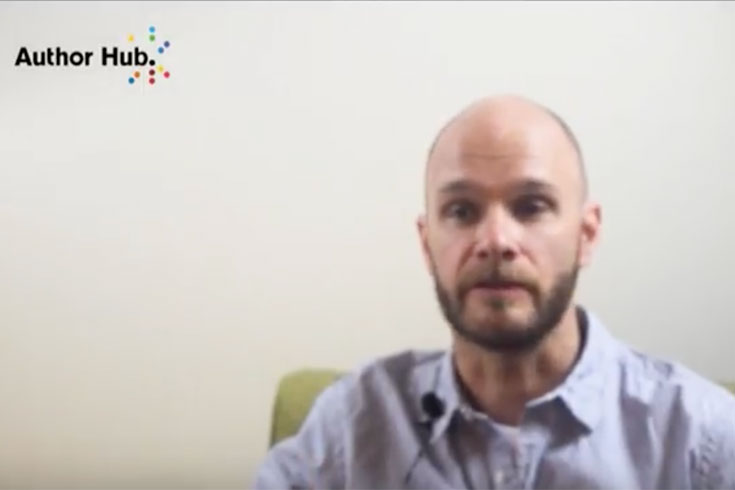
Pascal Menoret
January 24, 2017
September 22, 2016
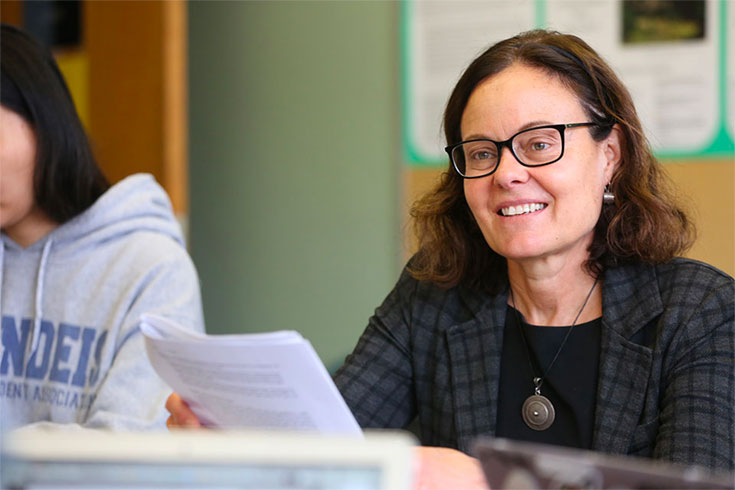
Sarah Lamb
July 8, 2016
Charles Golden, Daniel Souleles and Sarah Lamb have received Teaching Innovation Grants for 2016-17 through Brandeis’s Center for Teaching and Learning.
July 10, 2015

Photo Credit: The National
March 10, 2014
